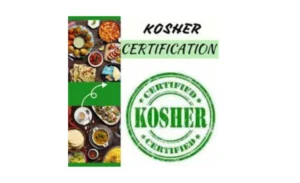What Kosher Meaning: Understanding a Tradition

Kosher Meaning
The Kosher Meaning finds its roots in Jewish law, where detailed dietary rules outline what foods are considered pure and acceptable. These laws are called kashrut, and they govern not just what foods are eaten, but how they are sourced, processed, cooked, and even stored. For a food to be considered kosher, it must comply with a range of strict standards—down to the smallest detail.
For example, only certain animals are considered kosher. These include animals that chew the cud and have split hooves, such as cows and sheep. Sea creatures must have fins and scales, which rules out shellfish. Birds like chicken and turkey are allowed, but birds of prey are not. In addition, animals must be slaughtered in a specific, humane way that minimizes pain and suffering.
Another key principle of kosher food is the separation of meat and dairy. These two food groups cannot be cooked, served, or consumed together, and even the utensils and cooking surfaces used for each must be kept separate.
Though deeply rooted in religious tradition, the Kosher Meaning has evolved to represent much more in the eyes of today’s global consumer.
The Modern Appeal of Kosher Foods
In recent years, the Kosher Meaning has gained broader appeal. While originally followed by Jewish communities for religious reasons, kosher food is now chosen by many people outside the faith. This is because kosher products offer something that consumers highly value: trust.
People with dietary restrictions, allergies, or a preference for natural ingredients often look for kosher labels. That’s because kosher certification brings with it a sense of clarity—an assurance that ingredients have been verified and that no hidden additives or cross-contamination exists. The strict rules and constant oversight that kosher products go through can make them feel safer and more reliable.
In today’s world, where food quality and transparency are major concerns, kosher has become a standard that many rely on. From vegetarians who want to avoid gelatin and animal by-products to those seeking high-quality meat prepared under strict hygiene, the appeal of kosher is wider than ever.
How Kosher Certification Works
Ensuring a product is truly kosher is no small task. This is where expert bodies like Kosher Meaning come into play. They serve as trusted authorities that oversee the kosher status of products, ingredients, and production methods.
The certification process involves close inspection of raw materials, production lines, packaging, and even the storage environment. If a company wants to label a product as kosher, they must go through a rigorous review process. Trained rabbis and kosher inspectors visit facilities, verify sources, and observe how products are handled.
Importantly, kosher certification is not a one-time check. It involves regular audits and continuous supervision to make sure that a manufacturer maintains the required standards over time. This ongoing process gives consumers confidence that the kosher label is genuine and meaningful.
Kosher Certification agencies also guide companies on how to make their facilities kosher-compliant—whether that means changing certain ingredients, installing new equipment, or training staff on proper food handling.
Also Read – Why Food Businesses Choose Kosher Certification
The Global Impact of Kosher Standards
The Kosher Meaning has extended far beyond religious observance and now plays an important role in global food trade. Many international brands pursue kosher certification not just to serve Jewish customers, but to build credibility in wider markets.
In countries where food safety is a top concern, kosher certification adds an extra layer of assurance. For businesses, it opens the door to new markets and a diverse customer base. For consumers, it provides a sign of transparency and ethical production practices.
This global impact is especially visible in sectors like packaged foods, beverages, dairy, and even cosmetics. Yes, even personal care items like toothpaste and lip balm can be kosher-certified if they meet the right criteria. This shows just how far-reaching and influential the kosher standard has become.
Kosher in Everyday Life
What does the Kosher Meaning look like in a typical household today? It could mean reading product labels more carefully, using separate cookware for meat and dairy, or checking for kosher symbols like “OU,” “K,” or “KLBD” when shopping. For those who strictly follow kosher, it is a way of life—a daily commitment to mindfulness and discipline.
But even for casual consumers, kosher foods offer benefits. They often use high-quality ingredients, avoid unnecessary additives, and are made under strict supervision. These qualities make kosher a smart choice for anyone looking to eat cleaner, safer, and more responsibly.
Conclusion: Kosher as a Symbol of Integrity
At its core, the Kosher Meaning is about more than food—it’s about values. It reflects honesty in labeling, care in preparation, and respect for religious tradition. Thanks to dedicated organizations like Kosher Certification, those values are upheld in every product that carries a kosher symbol.
In an age where consumers want more than just good taste from their food, kosher certification stands as a mark of trust. Whether driven by faith, health, ethics, or lifestyle, more people today are choosing kosher—not just for what it excludes, but for what it promises.

